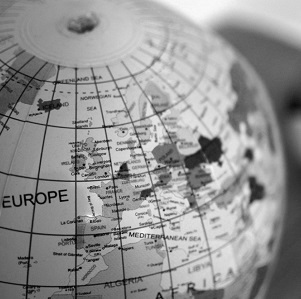Words fail us on migrant deaths, but so does our imagination
The desperate people massed in Calais, in the makeshift camp known as ‘the jungle’, are only a tiny proportion of the flow of refugees who have reached Europe’s southern shore in recent years. Many more are on their way, spurred...
The desperate people massed in Calais, in the makeshift camp known as ‘the jungle’, are only a tiny proportion of the flow of refugees who have reached Europe’s southern shore in recent years. Many more are on their way, spurred not by mythical benefits from our ‘land of milk and honey’, but by the sheer determination to survive at all.
Despite the disgraceful language used to describe them in this country – by the tabloids and more recently by the Prime Minister himself – their very existence does not make them ‘illegal’, their numbers and their persistence does not turn them into insects.
Some are no doubt economic migrants; most have escaped war, genocide, famine and persecution, and endured further mistreatment and misery at the hands of smugglers for the chance to even knock on our door. In most cases we don’t know their circumstances because they have not been processed in any way.
The current EU asylum policy, the so-called Dublin system, is manifestly broken. It prescribes that people should ask for asylum in the first European country they reach. But when, by geographical accident, the same three or four countries end up as the first port of entry, they cannot cope. As the flow of arrivals increases the incentive to let them through grows – to ease the pressure.
Some member states are more generous than others. Sweden and Germany are taking on the lion’s share of Syrian refugees for example, but there is no will to formalise a burden-sharing arrangement for the new arrivals and those still to come.
When the Mediterranean refugee tragedy began to unfold – again – this spring, Britain looked on, transfixed, on what seemed another nation’s problem. Our response has been to blame, mostly the seemingly lax controls in Italy, Greece or France. Britain’s line has been that it contributes generously through aid and cannot be compelled to agree to any quota scheme because of the opt-out it enjoys from certain Justice and Home Affairs provisions.
But as rescue hopes fade for migrants capsized in last night’s tragedy, will our government continue to shrug apologetically and say ‘not our problem’?
We cannot just throw money at this issue. There is no ‘opt out’ from the sheer force of world events – particularly those we have actively helped engineer, directly or indirectly, through our foreign policy.
While Europe bickers, panics and barricades itself behind higher fences, tougher barriers and – in Hungary’s case – even a bona fide wall, they keep coming and more Calais-style ‘jungles’ will build up. And make no mistake: a proportion of the mass of humanity displaced by conflicts on Europe’s border will find its way to our doorstep, too. Barrel bombs are a stronger push factor than benefit-withdrawal can ever be a disincentive.
The European project is under threat if we do not find a different way to deal with challenges like migration and asylum – among others – coherently and humanely.
Europe is experiencing a failure not just of leadership but also of memory and imagination. The safe, clean, civilised, peaceful continent we live in today has been continuously at war for most of human history, and history has a nasty way of repeating itself. When you let words like ‘swarm’ and ‘illegals’ casually slip into the language you use – or even tolerate – to describe other humans, you conveniently forget that we are all potentially a few twists of history, or a natural disaster or two, away from becoming somebody else’s cockroaches and criminals.
A more equitable system for sharing the processing of asylum seekers and for the long term re-settlement of genuine asylum cases is the only way forward. The word ‘quota’ has toxic connotations in this country given the state of the debate on immigration, but Britain cannot just wave a chequebook at Europe’s requests for action or co-operation. It cannot pretend not to be part of the solution.
Moreover, the ‘sensitivity’ of this issue due to the forthcoming referendum is not a legitimate excuse. Whether Britain stays in or gets out of the EU, desperate people will still try to get here. Working with others to help them, rather than bullying others into keeping them at bay, should be our strategy.
Paola is currently working on the Wake Up Europe campaign, sparked by Annalisa Piras and Bill Emmott’s BBC film The Great European Disaster Movie.

